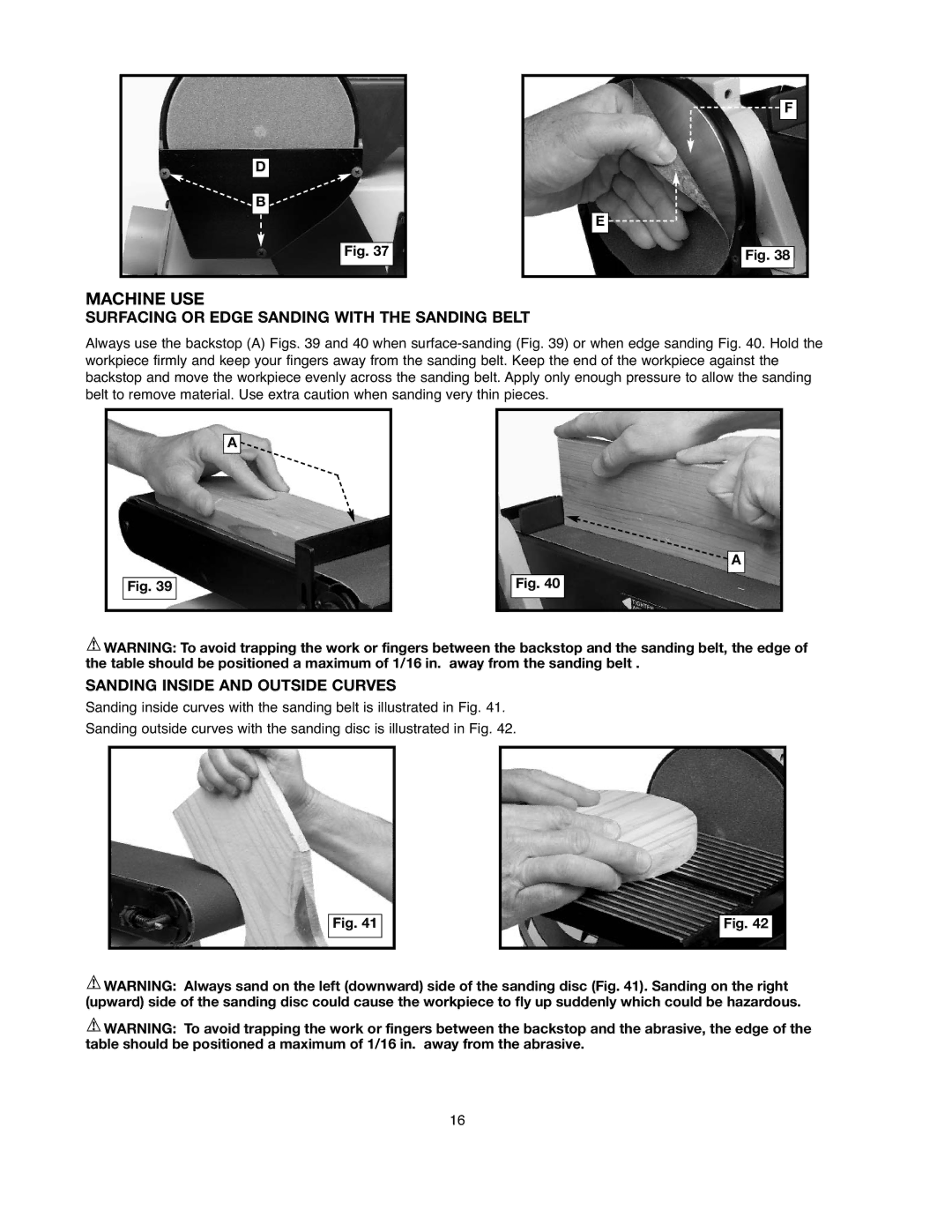
D
![]() B
B ![]()
Fig. 37
![]() F
F
E ![]()
![]()
![]()
Fig. 38
MACHINE USE
SURFACING OR EDGE SANDING WITH THE SANDING BELT
Always use the backstop (A) Figs. 39 and 40 when
A
Fig. 39
A |
Fig. 40 |
![]() WARNING: To avoid trapping the work or fingers between the backstop and the sanding belt, the edge of the table should be positioned a maximum of 1/16 in. away from the sanding belt .
WARNING: To avoid trapping the work or fingers between the backstop and the sanding belt, the edge of the table should be positioned a maximum of 1/16 in. away from the sanding belt .
SANDING INSIDE AND OUTSIDE CURVES
Sanding inside curves with the sanding belt is illustrated in Fig. 41.
Sanding outside curves with the sanding disc is illustrated in Fig. 42.
Fig. 41
Fig. 42
![]() WARNING: Always sand on the left (downward) side of the sanding disc (Fig. 41). Sanding on the right (upward) side of the sanding disc could cause the workpiece to fly up suddenly which could be hazardous.
WARNING: Always sand on the left (downward) side of the sanding disc (Fig. 41). Sanding on the right (upward) side of the sanding disc could cause the workpiece to fly up suddenly which could be hazardous.
![]() WARNING: To avoid trapping the work or fingers between the backstop and the abrasive, the edge of the table should be positioned a maximum of 1/16 in. away from the abrasive.
WARNING: To avoid trapping the work or fingers between the backstop and the abrasive, the edge of the table should be positioned a maximum of 1/16 in. away from the abrasive.
16
